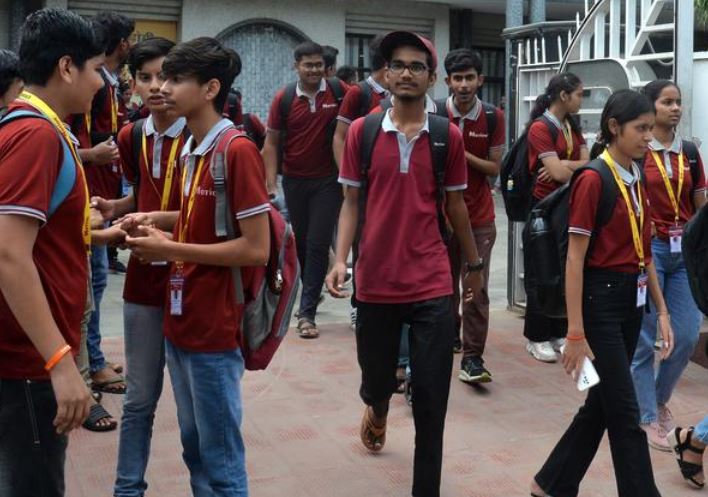he harrowing tale of a 16-year-old engineering aspirant from Bihar, who allegedly succumbed to the pressures of rigorous academic expectations by taking his own life in Kota, has once again spotlighted the alarming mental health crisis plaguing students in India’s coaching capital. This tragic incident marks the thirteenth case of suspected suicide by a coaching student in Kota since January, underscoring the urgent need for systemic reforms and enhanced mental health support.
The Tragic Incident
Sandeep Kumar Kurmi, a native of Bihar’s Nalanda district, was found hanging from a ceiling fan in his paying guest (PG) room in Mahaveer Nagar – III. The young aspirant, who had been attending coaching classes for the Joint Entrance Examination (JEE) for the past two years, was discovered by his classmate early on the morning of July 4th. The police confirmed that no suicide note was recovered from the scene, leaving many questions unanswered about the circumstances leading to his untimely death.
The Mental Health Crisis
Kota, renowned for its intensive coaching centers, attracts thousands of students from across the country each year, all striving for success in highly competitive exams such as the JEE and NEET. However, the relentless pressure to excel often takes a severe toll on their mental health. In 2023 alone, the number of student suicides in Kota stood at 26, reflecting a disturbing trend that necessitates immediate attention and intervention.
Despite the growing number of suicides, only 3% of Kota’s students have sought help from mental health professionals, highlighting the stigma and lack of awareness surrounding mental health issues. The district administration has mandated the installation of anti-suicide devices in hostels and PG accommodations, yet these measures alone are insufficient to address the root causes of this crisis.
Family and Educational Background
Sandeep Kumar Kurmi and his brother Sanjeet, who is also pursuing coaching for the medical entrance exam NEET in Kota, have faced significant hardships. Having lost their parents four years ago, their education was being funded by their uncle. This familial tragedy adds another layer of complexity to Sandeep’s story, raising questions about the additional emotional burdens carried by students in similar circumstances.
The Need for Systemic Change
The systemic issues contributing to student suicides in Kota are multifaceted. The overwhelming academic pressure, coupled with the isolation of living away from home and the lack of adequate mental health support, creates a perilous environment for vulnerable students. The implementation of anti-suicide devices in PG rooms and hostels, while a step in the right direction, is merely a reactive measure. Proactive steps, such as incorporating mental health education into the curriculum and providing accessible counseling services, are imperative.
Additionally, fostering a culture of openness and support within coaching institutions can help mitigate the stigma surrounding mental health. Peer support groups and regular mental health check-ins could provide students with the necessary emotional outlets and coping mechanisms to navigate the pressures of their academic pursuits.
Case Studies and Recent Incidents
The recent spate of suicides among coaching students in Kota, including the cases of NEET aspirant Hrishit Kumar Agrawal and JEE aspirant Ayush Jaiswal, both natives of Bihar, further exemplifies the gravity of the situation. Hrishit Kumar Agrawal, 17, was found hanging in his rented accommodation on June 26, while Ayush Jaiswal, also 17, took his life on June 16. These recurring tragedies point to a systemic failure in addressing the mental health needs of students.
The Role of Educational Institutions
Educational institutions, particularly coaching centers in Kota, must take a more active role in safeguarding the mental well-being of their students. This includes reducing the immense pressure to achieve top ranks, promoting a balanced approach to education, and ensuring that mental health resources are readily available and destigmatized. Regular workshops on stress management, mindfulness practices, and resilience building can equip students with the tools they need to cope with the intense demands of their studies.
Conclusion
The tragic death of Sandeep Kumar Kurmi is a poignant reminder of the urgent need for comprehensive mental health support and systemic change in Kota’s educational landscape. As we mourn the loss of another bright young life, it is imperative that we take collective action to create a supportive and nurturing environment for all students. By prioritizing mental health and well-being, we can help prevent such heart-wrenching incidents and ensure that every student has the opportunity to thrive both academically and emotionally.
Summary of Key Points
| Key Learning Points |
|---|
| Tragic suicide of a 16-year-old JEE aspirant in Kota |
| Thirteenth student suicide in Kota since January |
| Severe mental health crisis among Kota’s coaching students |
| Systemic issues and need for comprehensive mental health support |
| The role of educational institutions in fostering mental well-being |
Soumya Smruti Sahoo is a seasoned journalist with extensive experience in both international and Indian news writing. With a sharp analytical mind and a dedication to uncovering the truth, Soumya has built a reputation for delivering in-depth, well-researched articles that provide readers with a clear understanding of complex global and domestic issues. Her work reflects a deep commitment to journalistic integrity, making her a trusted source for accurate and insightful news coverage.



